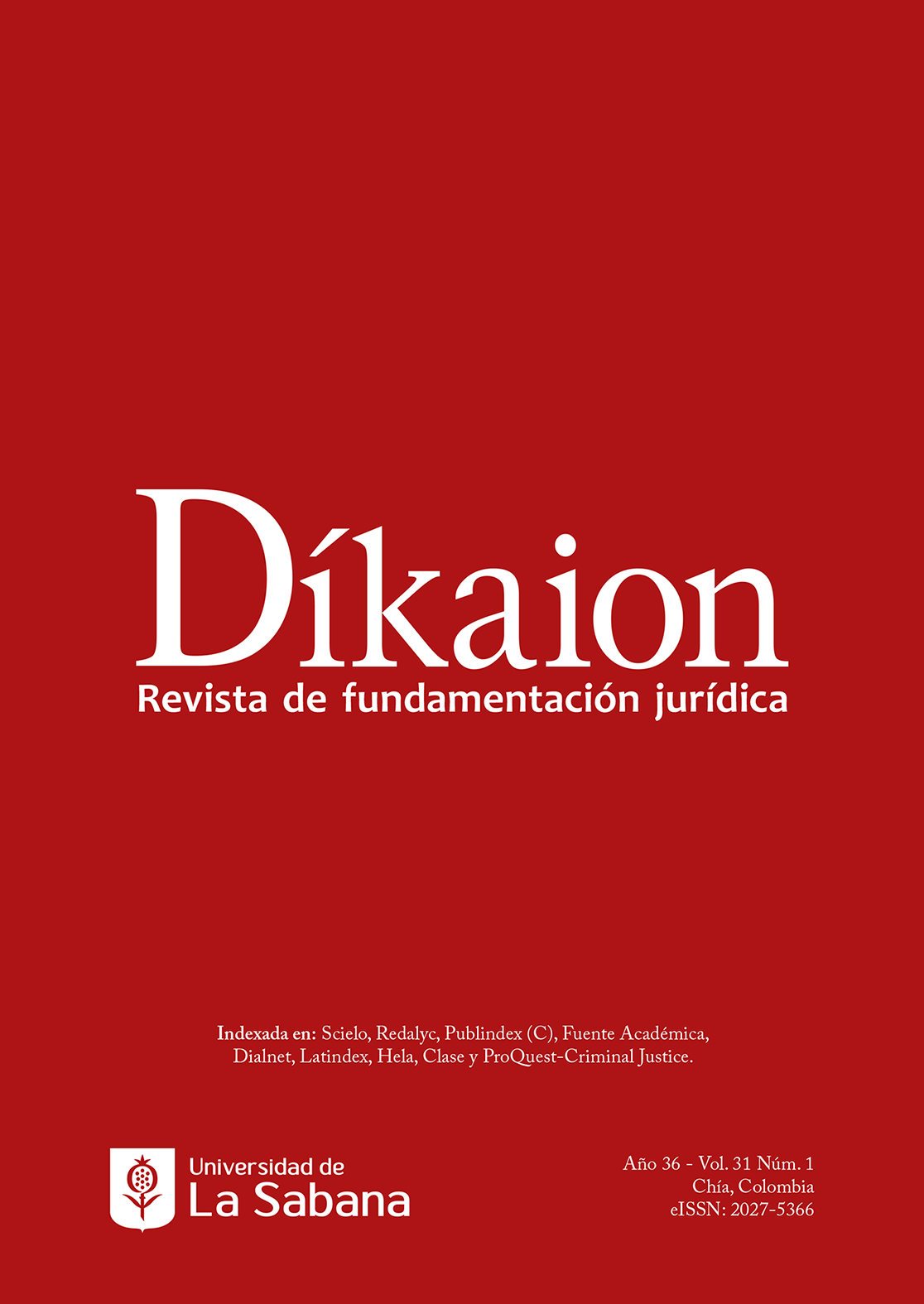Formalism or a Third Way to Reconcile the Value of Written Law and Constitutionalism? An Example of the Constitutional Court of Hungary
DOI:
https://doi.org/10.5294/dika.2022.31.1.2Keywords:
Unconstitutional constitutional amendments, constitutional review, formalism, constitutional supremacy, Fundamental Law of HungaryAbstract
The article titled “The Formalist Resistance to Unconstitutional Constitutional Amendments” by Richard Albert, Malkhaz Nakashidze, and Tarik Olcay identifies three countries and the practices of their respective constitutional courts that, until now, have rejected the doctrine of unconstitutional constitutional amendments. After a detailed analysis, the authors conclude that, through different theoretical means, all three courts studied decided not to apply the delegation theory of constitutional change; therefore, they consider that no constitutional amendment can be unconstitutional on substantial grounds. This study aims to demonstrate that there is a counterweight to the tendency, which seems to be more and more global, of adopting the doctrine of unconstitutional constitutional amendments, which is worthy of the attention of the academic community. Besides reaffirming this conclusion, the present article looks more into the depths of “formalism” as a possible reason behind the rejection of the doctrine of unconstitutional amendments, indicating that there might be a category other than the ones from France, Georgia, and Turkey. The Hungarian case represents a practice committed to the normative textual limits in its constitution regarding the constitutional review of amendments, which, at the same time, tries to reconcile the value of written law with the protection of the supremacy of the constitution, constitutionalism, and the rule of law.
Downloads
References
Alexandar, Lawrence y Emily Sherwin, Demistyfying Legal Reasoning, Cambridge, Cambridge University Press, 2008.
Chronowski, Nóra, Tímea Drinoczi y Judit Zellet, “Túl az alkotmányon...”, en Közjogi Szemle (4) (2010), pp. 1-12.
Corte Constitucional de Hungría, Decisión 293/B/1994 (IV. 11).
Corte Constitucional de Hungría, Decisión 12/2013 (V. 24).
Corte Constitucional de Hungría, Decisión 45/2012 (XII.29).
Corte Constitucional de Hungría, Decisión 13/2013 (V. 24).
Drinóczi, Tímea, Fruzsina Gárdos-Orosz y Zoltán Pozsár-Szentmiklósy, “Formal and informal constitutional amendment in Hungary”, en MTA Law Working Papers 18 (2019). DOI: https://doi.org/10.1017/S2071832200002133
Dyevre, Artur y András Jakab, “Foreword: Understanding constitutional reasoning”, en German Law Journal 14 (8) (2013), pp. 983-1015. DOI: https://doi.org/10.1017/S2071832200002133
Esquirol, Jorge, “The turn to legal interpretation in Latin America”, en American University International Law Review 26 (4) (2011), pp. 1032-1072.
Fröhlich, Johanna, Fruzsina Gárdos-Orosz, Eszter Bodnár y Zoltán Pozsár-Szentmiklósy, “Hungary”, en International Review of Constitutional Reform 2020 (Luis Roberto Barroso - Richard Albert, 2021), pp. 136-139.
Halmai, Gábor, “Unconstitutional constitutional amendments: Constitutional Courts as guardians of the Constitution?”, en Constellations 2 (2012). DOI: https://doi.org/10.1111/j.1467-8675.2012.00688.x
Jakab, András y Pál Sonnevend, “Discontinuity with deficiencies: The new basic law of Hungary”, en European Constitutional Law Review 9 (2013). DOI: https://doi.org/10.1017/S1574019612001058
Jakab, András, “Judicial reasonig in constitutional courts: A european perspective”, en German Law Journal 14 (8) (2013), pp. 1215-1275. DOI: https://doi.org/10.1017/S207183220000225X
Landau, David, “Abusive Constitutionalism”, en U.C. Davis Law Review 47 (1) (2013), pp. 189-260.
Szente, Zoltán, “Az Alkotmánybíróság döntése Magyarország Alaptörvényének Átmeneti Rendelkezései alkotmányosságáról”, en JeMa (2) (2013), pp. 11-21.
Tribunal Constitucional de Chile, ROL 9797-20-CPT (30 de diciembre de 2020).
Tóth, Gábor Attila, Constitution for a Disunited Nation: On Hungary’s Fundametal Law. Budapest, CEU Press, 2012.
Uitz, Renáta, “The return of the hungarian Constitutional Court”, VerfBlog, 15 de enero de 2013, https://verfassungsblog.de/the-return-of-the-hungarian-constitutional-court/
Published
How to Cite
Issue
Section
License
Copyright (c) 2022 Díkaion

This work is licensed under a Creative Commons Attribution-ShareAlike 4.0 International License.
1. Proposed Policy for Journals That Offer Open Access
Authors who publish with this journal agree to the following terms:
This journal and its papers are published with the Creative Commons License Attribution-NonCommercial-NoDerivatives 4.0 International (CC BY-NC-ND 4.0). You are free to share copy and redistribute the material in any medium or format if you: give appropriate credit, provide a link to the license, and indicate if changes were made; don’t use our material for commercial purposes; don’t remix, transform, or build upon the material.










